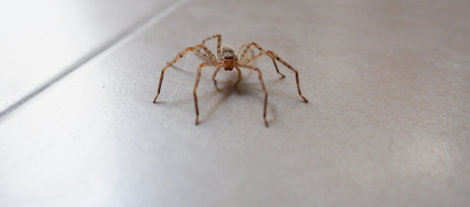Spiders are amazing animals that often pique interest due to their development and breeding habits. Many people question if spiders reproduce quickly, particularly when they suddenly show up in their homes. Some spiders reproduce fast, while others take their time. Spiders’ rate of reproduction is mostly determined by their species, habitat, and environmental factors including temperature and food availability. Let’s examine the rate of spider reproduction and the variables that influence it.
The Spider’s Reproduction Process
Sexual reproduction is the method used by spiders to reproduce. During mating season, male spiders usually approach females and transfer sperm using specialized pedipalps. The female often keeps the sperm in her reproductive organs after mating. The number of eggs in the sac she may lay can range from a few to several hundred, depending on the species. To evade predators, these sacs are usually concealed in safe, protected areas.
Development and Hatching of Eggs
The duration for spider eggs to mature might range from several weeks to several months, dependent upon the species and environmental conditions. Some species may generate several egg sacs during a single season, resulting in a significant population surge. The spiderlings emerge from the eggs and start independent survival. Some species may generate as many as 1,000 spiderlings simultaneously inside a single egg sac, an impressive number. Nevertheless, only a minuscule fraction of these spiderlings will reach adulthood.
Factors Influencing Spider Multiplication Rate
Spider reproduction is influenced by a number of variables. The availability of food is one of the most crucial. Because they have more energy to devote to creating egg sacs, spiders that reside in prey-rich environments often reproduce more quickly. Spider reproduction is significantly influenced by temperature as well. Spiders may develop more quickly and reproduce more often in warm climates. Spiders may have a longer life cycle and spawn less often in colder climes.
Effects of the Environment on Reproduction
Spiders may deposit fewer eggs or reproduce less often in regions with temperature fluctuations or in where food is sparse. Spiders, on the other hand, are more likely to proliferate quickly in settings with stable circumstances, such as warm houses or gardens. Spiders may seem to proliferate more swiftly in certain places because they may modify their reproductive activity according to their environment.
Do Spiders Proliferate Quickly in Your House?
There are a number of reasons why spider activity may have increased near your house. Certain species, such as the common house spider, reproduce more quickly because they are very adept at locating food and refuge inside. It could be necessary to see a pest control professional if you believe that spiders are growing too rapidly in your house. They can help control spider populations and stop them from spreading quickly.
Experts in Spider Control
Spider control professionals may assist when spider populations seem to be growing at an alarming pace. These specialists are able to identify the species, evaluate the situation, and provide guidance on the most effective way to lower their numbers. They could advise caulking openings and removing locations where spiders like to construct webs or deposit their eggs.
How to Handle the Fast Growth of Spiders
The rate of spider reproduction varies depending on the species and environmental conditions. Some spiders have slower life cycles, whereas others may reproduce quickly. Their rate of reproduction is greatly influenced by variables including temperature, food availability, and secure nesting locations. Seeking guidance from pest control experts or spider management specialists might help you properly handle a spider infestation in your house.
Put your faith in Peak Pest Control if you need assistance controlling pests or are facing an infestation of spiders. Our knowledgeable staff offers practical ways to keep spiders out of your house. For a pest-free, safer environment, get in touch with us right now!









